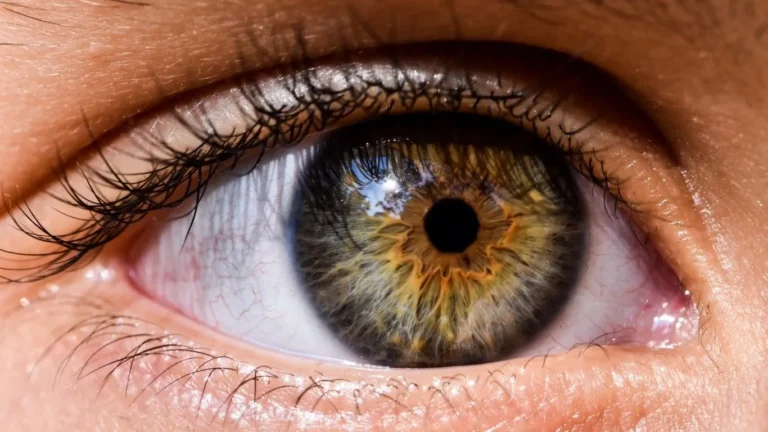Surprising Truth: Can Asthma Cause Strange Breathing Noises?
Can asthma cause strange breathing noises? As a pulmonary nurse practitioner, I’ve had more than a few patients look at me wide-eyed after describing what they called “weird sounds” coming from their chest—whistling, squeaking, gurgling, and even a kind of rattling noise. If you’ve ever wondered whether asthma could be behind those unusual sounds when you breathe, you’re definitely not alone. And yes, it can. Asthma isn’t always a dramatic wheeze-and-gasp situation like the movies make it out to be. Sometimes it shows up in quieter, sneakier ways. Let’s dig into what’s going on when your lungs decide to get a little noisy.
What’s Really Going On When Breathing Sounds Get Weird?

Breathing should be pretty silent under normal conditions, right? So when patients start noticing funky noises like high-pitched whistles or deep rattles, it can be alarming. I once had a patient describe her chest sounds as “like a tea kettle going off at half-steam.” She wasn’t wrong.
These odd noises often boil down to something simple: air struggling to pass through narrowed or inflamed airways. In the case of asthma, this narrowing is due to inflammation, excess mucus, and muscle tightening in the airways. When air moves through these constricted spaces, it can create all sorts of audible symptoms.
Why Asthma Causes Strange Breathing Noises
Let’s talk about how asthma messes with airflow in a way that creates those sounds. Think of your airways as little pipes. When those pipes are smooth and wide open, air flows easily and quietly. But when asthma hits, those same airways become:
- Inflamed – The lining swells and thickens, narrowing the airway path.
- Filled with mucus – Extra mucus clogs the airways, making it even harder for air to get through.
- Muscle-tightened – The muscles around the airways tighten up, squeezing things even more.
The result? Air whistles or rattles through like wind in a cracked window.
Common Sounds Asthma Patients Report

Let me break it down into the types of sounds you might notice. Over the years, I’ve had patients use some pretty creative descriptions, but they almost always fall into a few familiar categories:
- Wheezing – That classic high-pitched whistle, usually heard when exhaling. One of the most common signs of asthma but not the only one.
- Rhonchi – Sounds like snoring or low-pitched rattling. It’s often linked to mucus in larger airways.
- Stridor – A harsher, more musical sound heard on inhalation. More serious and can indicate upper airway obstruction.
- Crackles – Popping or bubbling noises, usually tied to fluid in the smaller airways. Not typical for asthma but occasionally overlaps with chronic cases.
Sometimes, these noises aren’t even picked up by a stethoscope—they’re heard by the patient themselves, especially at night. I always tell my patients: If your breathing sounds different, don’t ignore it.
When Should Strange Breathing Noises Be a Red Flag?

Not every squeak or whistle is a 911 situation, but it can be hard to know when to take action. I’ve had patients brush off their symptoms for weeks, assuming it’s just allergies or a lingering cold—until they’re suddenly struggling to breathe during a flare-up.
Here’s when to pay closer attention:
- Noises worsen at night or early morning
- You start feeling tightness in your chest
- You’re using your rescue inhaler more than usual
- You’re short of breath even with light activity
- Your lips or fingernails start to look bluish
These are all signs that your asthma—or whatever’s causing those sounds—isn’t well controlled. And while I’m all for the “wait-and-see” approach with minor things, breathing issues don’t fall into that category.
Not All Noises Are Asthma (But Many Are)
This is where things get a bit tricky. Just because you’re hearing weird noises doesn’t automatically mean it’s asthma. Other lung conditions can mimic or overlap with asthma symptoms, including:
- Bronchitis – Temporary inflammation and mucus production can sound just like asthma.
- COPD – Especially in smokers or older adults, this can create similar wheezing and rattling.
- Upper respiratory infections – Viral infections can lead to transient wheezing or rhonchi.
In my practice, I always do a deep dive when someone presents with these sounds for the first time—because jumping to conclusions can lead to the wrong treatment. Sometimes it’s asthma. Sometimes it’s something else. But identifying it early is key.
How to Tell If Asthma Is Causing Those Strange Breathing Noises

So now you’re probably wondering—how do you know for sure if it’s asthma behind the soundtrack coming from your lungs? Great question. Honestly, this is where a thorough evaluation becomes essential. I’ve had patients come in convinced they’re dealing with allergies or a mild cold, but after a few targeted questions and a quick listen with my stethoscope, the story changes.
The gold standard in diagnosing asthma usually includes:
- Listening to your lungs – During both quiet and deep breathing.
- Spirometry testing – Measures how much air you can exhale and how quickly. Super helpful in confirming obstruction.
- Peak flow monitoring – Handy for home use and tracking changes over time.
- Patient history – Seriously, your story is half the diagnosis. When it started, what triggers it, how it changes over time… all that matters.
One of my patients, let’s call him Jake, had been living with what he thought was chronic bronchitis. Turned out, he had adult-onset asthma. All those “seasonal colds” were actually asthma flares triggered by pollen and air pollution. Once we got his inhaler routine on point, the mystery noises calmed way down.
Can Asthma Cause Strange Breathing Noises All the Time?

Here’s something I get asked a lot—“Do these weird breathing sounds happen all the time if it’s asthma?” And the answer is: not necessarily. Asthma symptoms can come and go. That’s what makes it tricky for many people to recognize. You could have completely normal breathing most of the day, and then boom—at night, during a workout, or after laughing too hard—you hear that strange whistle or rattle.
Some common triggers for asthma noises include:
- Exercise – Especially in cold weather (hello, winter joggers!)
- Allergens – Dust mites, pollen, mold… you name it
- Cold or dry air – A biggie in winter months
- Respiratory infections – Even a basic cold can ramp things up
- Emotions – Yep, stress or laughter can tighten airways too
What’s important is recognizing patterns. If you start to notice these sounds popping up after exposure to certain triggers—or if they’re waking you up at night—it’s worth getting evaluated.
Tracking Your Symptoms Can Be a Game-Changer
One piece of advice I always give my patients: track your symptoms. It doesn’t have to be fancy—just jot down when you hear the noises, what you were doing, and how long they lasted. Bonus points if you note how your breathing felt overall. This helps us piece together a clearer picture and tweak treatment plans more effectively.
There are even mobile apps now that can record your breath sounds, which is incredibly helpful. I had a mom bring in her son’s breathing noises recorded on her phone—saved us a ton of guesswork and helped fast-track his diagnosis.
Managing Asthma-Related Breathing Noises: What Works and What Doesn’t

Once we confirm asthma’s behind the sounds, the goal becomes quieting them down. I know how disruptive it can be—some patients say the noises keep them up at night or make them self-conscious around others. The good news? There are a ton of strategies that work really well when used consistently.
Medications to the Rescue
- Rescue inhalers (like albuterol): Quick relief during flare-ups. You’ll feel and hear a difference fast.
- Maintenance inhalers (steroids or combo meds): These keep inflammation at bay, so those strange sounds don’t keep coming back.
- Leukotriene modifiers: Pills like montelukast can help some folks with allergy-related asthma symptoms.
I always stress that it’s not just about taking meds when you feel bad—preventive treatment is where the magic happens. Once patients get into a routine, they’re often surprised how much quieter and more “normal” their breathing becomes day-to-day.
Environmental Adjustments That Make a Big Difference
Sometimes, you’ve got to do a little detective work at home or work. I’ve helped patients uncover mold issues in their bathrooms or pet dander hiding in the carpet. Small changes like these can be huge:
- Using HEPA filters in your home
- Keeping pets out of the bedroom (I know, easier said than done)
- Regularly washing bedding in hot water
- Investing in a dehumidifier
One patient of mine found out her new office plant was the culprit. The plant itself wasn’t the issue—it was the moldy soil. Who knew? Swapped the plant for a low-allergen option, and the mystery wheeze disappeared.
When to Re-Evaluate Your Treatment
If you’re doing all the right things and still hearing those sounds on a regular basis, it might be time to rethink your asthma management plan. Medications sometimes need adjusting, especially if your lifestyle or exposure changes (hello, seasonal allergies!).
Don’t wait too long to follow up. I always tell my patients: Asthma is a moving target. What worked six months ago might not cut it today. Regular check-ins can keep you ahead of the game—and breathing a whole lot easier.
Can You Prevent Strange Breathing Noises from Asthma Altogether?

Honestly? In many cases, yes—you can cut those odd, unsettling breathing sounds way down or even eliminate them completely. But it takes some intentional effort and consistency. I always tell my patients that managing asthma isn’t about perfection. It’s about awareness and control. Life happens, flares happen—but when you understand your asthma well, you can get ahead of those noisy symptoms before they get out of hand.
It comes down to being proactive, not reactive. I’ve seen it time and again: patients who go months without any strange breathing sounds once we fine-tune their asthma plan. That includes not just meds, but lifestyle tweaks, avoiding triggers, and regular check-ins.
- Don’t skip maintenance inhalers – Even when you “feel fine.” That’s the trick—they’re keeping you fine.
- Stay hydrated – Thin mucus flows better, and that means fewer rattly sounds.
- Warm up before workouts – Sudden activity in cold air is a recipe for wheezing.
- Listen to your body – Even small changes in how your breathing sounds can be a heads-up that your asthma is trying to speak up.
One patient of mine, a college student with a hectic schedule, started tracking her symptoms with a simple bullet journal. She noticed a pattern: every time finals rolled around, she’d start wheezing. Stress was her trigger. Now she preps her treatment a little differently during those weeks—problem solved (or at least managed well).
When Strange Noises Mean It’s Time for Help

While most asthma-related breathing noises are manageable, there are times when they signal something more serious. I always encourage folks not to “tough it out” when their breathing takes a turn for the worse. If you’re noticing any of the following, please don’t wait:
- Breathing noises are louder or more frequent than usual
- They don’t go away after using your rescue inhaler
- You’re waking up gasping or coughing at night
- Your chest feels tight even when you’re just sitting
- You start seeing a bluish tinge on your lips or fingertips
Those aren’t just red flags—they’re full-blown warning sirens. I once had a young man come in who thought he just had “a weird cold.” Turned out he was in the early stages of status asthmaticus, a severe asthma attack that doesn’t respond to normal treatment. Thankfully, we got him stabilized, but it was a wake-up call for both of us.
Knowing When to Go to the ER
If you or someone you love has asthma and starts experiencing:
- Severe breathlessness that doesn’t improve with medication
- Trouble speaking in full sentences
- Silent chest (yes—no sound can be more dangerous than wheezing)
—that’s an emergency. Don’t drive yourself. Call 911.
Building an Asthma Action Plan That Works for You
This is where we take everything we’ve talked about—those strange breathing noises, what they mean, how to manage them—and put it all together in a game plan. Every patient I work with leaves with a personalized asthma action plan. It’s not just a piece of paper—it’s a tool. And it can make the difference between chaos and calm.
What should your plan include?
- Your daily maintenance meds and when to take them
- What symptoms mean you should adjust your meds
- When to use your rescue inhaler
- Which symptoms mean you need urgent help
If you’ve never had one made, talk to your healthcare provider. You don’t have to figure this out alone. The goal is to empower you—not scare you.
Real Talk from the Clinic
I’ve been in pulmonary care for years now, and here’s what I’ve seen over and over: The more someone understands their asthma, the less power it has over their life. The less scary those weird breathing noises become. You start noticing patterns, staying ahead of symptoms, and living your life without being held back by uncertainty or fear.
So if you’re hearing those odd whistles, pops, or rattles and wondering, “Can asthma cause strange breathing noises?”—now you know the answer is a solid yes. But with the right tools, the right treatment, and a little support, you don’t have to live in constant worry about it.
References
- Asthma and Allergy Foundation of America
- Centers for Disease Control and Prevention
- American Lung Association
- American Gastroenterological Association
Disclaimer
Medical Disclaimer: The information in this article is intended for educational purposes only and should not be used as a substitute for professional medical advice, diagnosis, or treatment. Always consult your licensed healthcare provider with any questions you may have regarding a medical condition. As a pulmonary nurse practitioner, I offer insight based on clinical experience, but this content should not replace individualized care.

Bianca Nala is a compassionate Nurse Practitioner with a strong background in primary and respiratory care. As a health writer for Healthusias.com, she combines her clinical expertise with a talent for clear, relatable storytelling to help readers better understand their health. Bianca focuses on topics like asthma, COPD, chronic cough, and overall lung health, aiming to simplify complex medical topics without losing accuracy. Whether she’s treating patients or writing articles, Bianca is driven by a single goal: making quality healthcare knowledge accessible to everyone.







